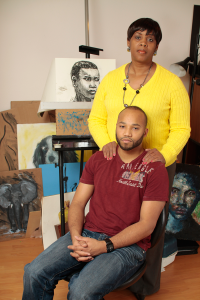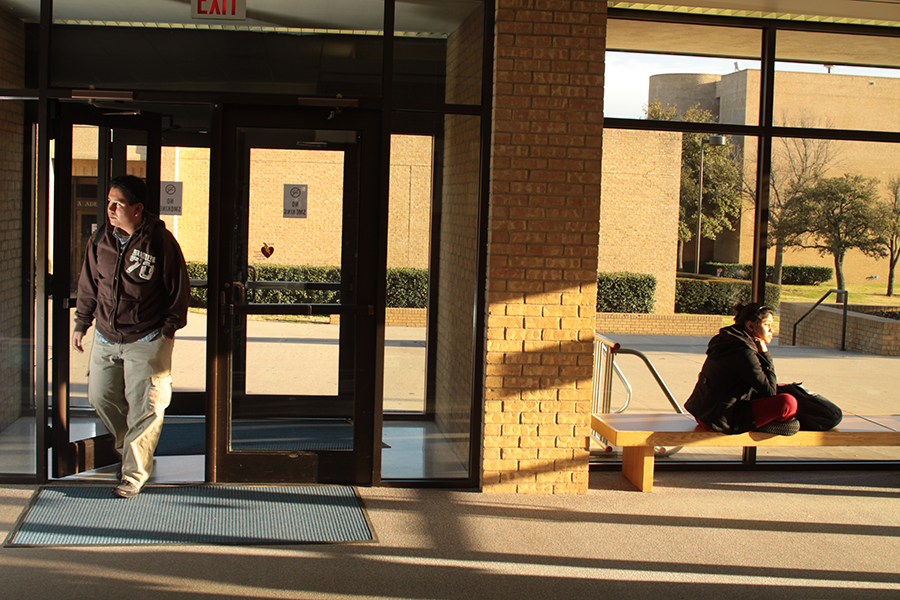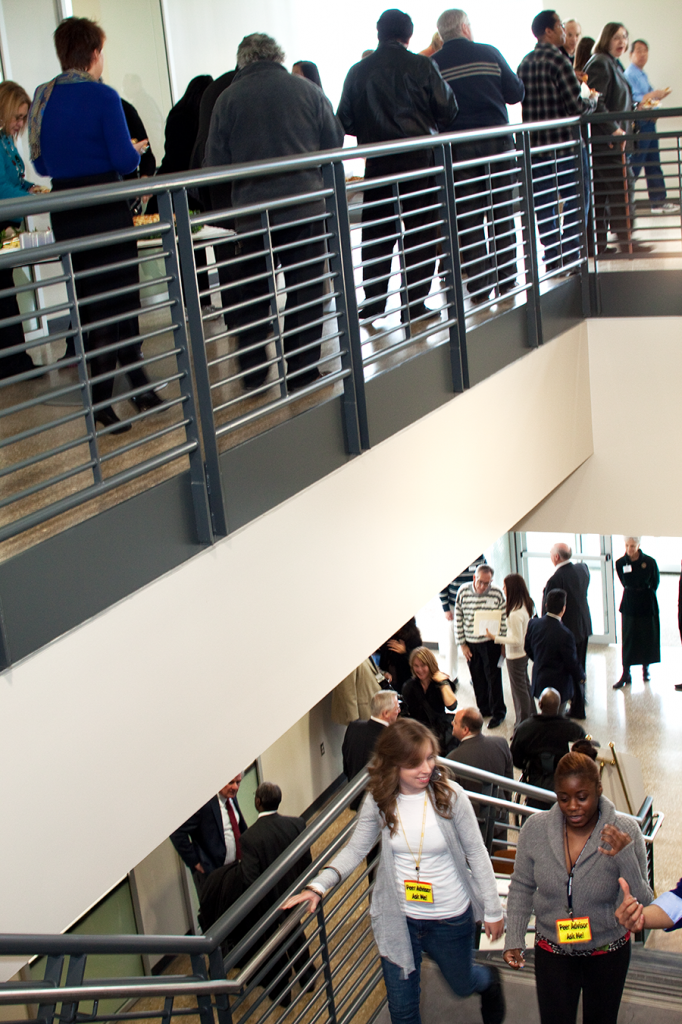By Brittanie Dawson/reporter

Photos by Casey Holder/The Collegian
Remembering the horrors of his own childhood, NE student Jackie Davis wants to

Photos by Casey Holder/The Collegian
develop an after-school art program for foster care children to provide them with a creative avenue for self-expression.
Currently, more than a half-million children are in the U.S. foster care system, according to Casey Family Programs National Center for Resource Family Support.
According to a recent study, three of every 10 homeless Americans grow up in foster care.
The study also reports that within two years after leaving foster care, the young adults were more likely to become incarcerated, lose their jobs and/or need public assistance.
At age 2, Davis and seven of his eight siblings, all products of two young parents with alcohol and drug addictions, were placed into the foster care system.
After various complaints from neighbors, family members and teachers about the children’s lack of proper clothing and allegations of neglect, the state placed the children into several foster homes and centers.
Davis now openly discusses the abuse and his experience with multiple home and center placements.
He reports being beaten severely, often forced to sleep in the bathtub and locked in a closet for hours.
When he was 5, a family decided to adopt him, but family life did not last.
Following the adoption, his new parents changed their mind. By 6, he was back in the foster care system.
Davis’ situation deteriorated.
Emotionally and physically damaged, Davis began to struggle with bedwetting, which in turn led to more abuse from the new foster family.
Once, they tied him in a trash bag and tried to put him in the attic.
By this point, he was fed up with his life full of abuse.
At 7, Davis attempted suicide. He knew his foster sister took medicine for seizures.
“I took my foster sister’s medicine bottle, and I began to take all of her pills,” he said. “Next I remember, I awoke in the hospital.”
Doctors told him he was “lucky to be alive” although Davis said he didn’t feel so lucky to have to go back to that family after his three-month hospitalization.
Davis’ journey through abuse and neglect didn’t end there.
By the time he was 14, he had lived in 14 different foster care homes and centers, where he and many other children experienced more abuse and instability.
At 10, while Davis was in transition, Alesia Davis, a foster care worker, met and fell in love with the young boy.
“When I first saw Jackie, he melted my heart,” she said. “I said to myself, ‘He is my other child.’”
Although it would be three more years before Alesia Davis would encounter the boy again, she would give up her job because of “conflict of interest” and adopt Davis into her family, where he has finally found the love and healing he’d desired his entire youth.
Alesia Davis noted one change in her son.
“He now exudes confidence that he did not have when he first came home. He knows who he is,” she said. “Jackie has become a wonderful young man that I am proud to have as a son.”
Davis is now pursuing a degree in psychology and plans to become an advocate for children in the foster care system.
He wants to help them become emotionally healthy and prepared for life beyond foster care.
Davis has learned to use art as a way to escape the pain of his past and as a method of self-discovery and healing.
He currently works as an advocate for Tarrant County Child Protective Services and has plans in the works to establish an after-school program to give foster care children “something to look forward to,” he said.
Adam Flores, 28, and a former foster care youth, agreed with Davis’ perception of needs.
“The program is a good idea,” he said. ”Programs like that will be a good way for the kids to express themselves on their own terms.”
Flores also underwent abuse and bad experiences in the foster care system.
“I and other kids didn’t have a good experience,” he said.
“I wish there was a program like this available to me. I think then I would be able to talk more about my experience.”
Davis also plans to use his psychology degree to understand children’s behavior patterns.
“Art will help you express yourself no matter what you’re feeling,” he said. “You can reveal it on a canvas and work through your feelings to not destroy yourself.”



























